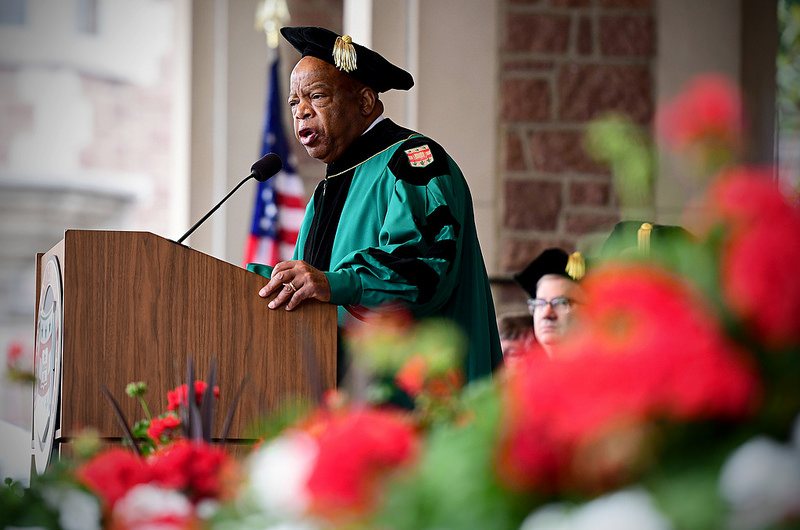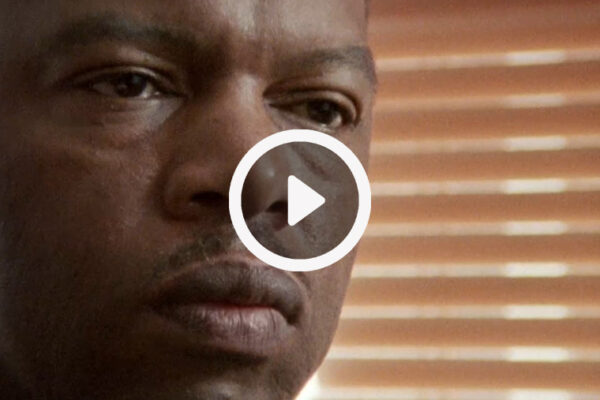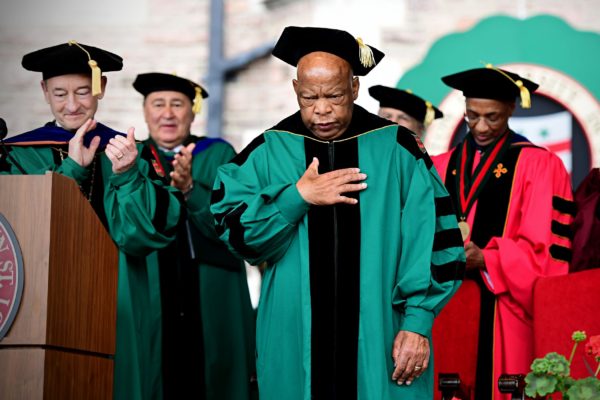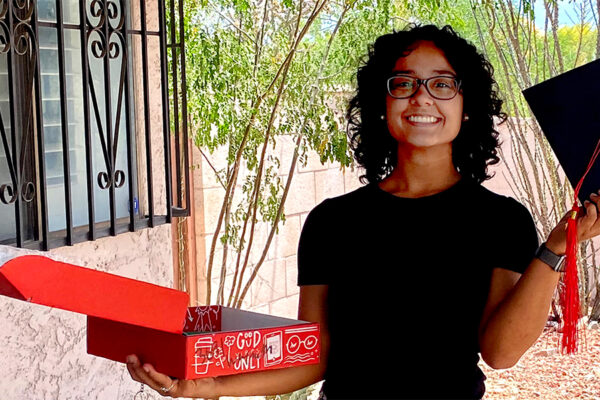
(Photo: James Byard/ Washington University)
Washington University in St. Louis
155th Commencement Address
The Honorable John R. Lewis
Mr. Chancellor, Provost Thorp, Chairman of the Board of Trustees, and members of the Board, and the University Council, distinguished faculty, alumni, parents and friends, and to the class of 2016, I’m honored, delighted to be with you on this very important occasion. I wish each and every one of you could stand where I’m standing. Unbelievable, unreal.
Graduates, you look beautiful. You look handsome.
To each and every one of you receiving a degree today, congratulations. This is your day. Enjoy it. Take a long, deep breath and take it all in. But tomorrow you must be prepared to roll up your sleeves because the world is waiting for talented men and women to lead it to a better place.
I love to come to college campuses to speak because I believe that young people are often on the cutting edge. You have the education. You have the energy. You have the skills, the know‑how to get in the way.
When I was growing up in rural Alabama on that farm that my father bought in 1944, when I was only four years old, he had saved $300 and a man sold him 110 acres of land. And from the little town of Troy, I visited Birmingham, Tuskegee. I saw those signs: White waiting, colored waiting, white man, colored man, white women, colored women. I asked my mother, asked my father, my grandparents, great grandparents, “Why?” They said, “That’s the way it is. Don’t get in the way. Don’t get in trouble.”
But as the chancellor said, I heard about Rosa Parks, I listened to the words of Martin Luther King Jr. The action of Rosa Parks and the words and leadership of Dr. King inspired me to find a way to get in the way. I got in the way. I got in trouble. Good trouble, necessary trouble.
As graduates of this great university, you have received a great education. You must leave here and go out and get in the way. When you see something that is not right, not fair, not just, you must have the courage to stand up, to speak up, and find a way to get in the way.
When I was your age, some maybe thought I was just a little off. Maybe a little maladjusted. But sometimes you have to be a little maladjusted. Stood in the way of peace, stood in the way of love, stood in the way of nonviolence, and students, during the late ’50s and early ’60s, we came together. We studied what Gandhi attempted to accomplish in South Africa, accomplished in India. We studied the rule of civil disobedience, we studied what Martin Luther King Jr. and the people in Montgomery were all about. We start sitting in. By sitting in, by sitting down, we were standing up for the very best in American tradition.
On May 20, 1961, the same year that president Barack Obama was born, some of us on the freedom rides, black and white college students, arrived in Montgomery, Alabama, at the Greyhound Bus station. We were met by an angry mob. We were beaten. We were left bloody. We were left unconscious, some of us. And later, we traveled by bus to Mississippi and other parts of the south where we were arrested and jailed.
We didn’t give up. We didn’t give in. We didn’t lose faith. We kept our eyes on the prize. And as students, as graduates, you must keep your eyes on the prize. You have a moral obligation, a mission, and a mandate to do your part. You must play a role, help to redeem the soul of America, help create a beloved America, a beloved world where no one is left out or left behind because of their race or their class. In the final analysis, we are one people. We are one family.
If it hadn’t been for Martin Luther King Jr. and Rosa Parks and for the rule of law, I wouldn’t be standing here today as a member of Congress. A story I like to tell from time to time, when I was growing up on the farm, picking cotton, pulling corn, gathering peanuts, my mother would say, “Boy, you falling behind.” And I would say, “This is hard work.” And she would say, “Hard work never killed anybody.” I said, “Well it’s about to kill me.”
Well on that farm, it was my responsibility to care for the chickens, and I fell in love with raising chickens. As students, as young people, some of you eat chicken, right? I won’t bore you with the story but as a little boy, I fell in love with raising chickens. I used to take the little chickens and put ’em all together in a chicken yard and my cousins and brothers and sisters would line the outside around the chicken yard, they would help make up the audience, or the congregation, and I became the minister.
And I would preach to these chickens.
And some of these chickens would bow their heads, some of these chickens would shake their heads. They never quite said “amen,” but when I looked back on it though, the chickens that I preached to in the ’40s and the ’50s tended to listen to me much better than some of my colleagues listen to me today in the Congress.
As a matter of fact, some of those chickens were just a little bit more productive.
At least they produced eggs!
Now I don’t want to preach to you. I don’t want to. But we have witnessed all across America unbelievable changes. The signs that I saw when I was growing up, saying white waiting, colored waiting, white men, colored men, white women, colored women, those signs are gone. And they will not return. The only place that you or your children and their children will see those signs today would be in a book, in a museum, on a video. But you still have some of the same problems not just here in America, but around the world. There are forces today that are trying to take us back, but we cannot go back. We have come too far, we’ve made too much progress and we must not go back. Your generation — you must lead the way, you must find a way to get in the way. Now this is an election year. And I’m not going to be partisan, but I tell you, I received a great education.
Look. Use your education.
You must go out and vote, those of you who are old enough. Get registered and vote. The vote is precious. It’s almost sacred. It is the most powerful nonviolent instrument or tool that we have in a democratic society, and we must use it.
When I was growing up in rural Alabama, my mother, my father, my grandparents, my great grandparents could not register to vote simply because of the color of their skin. People stood in unmovable lines. Some individuals were asked to count the number of bubbles in a bar of soap or the number of jelly beans in a jar. On June 21, 1964, three young men that I knew, Andy Goodman and Mickey Schwerner from New York and James Chaney from Mississippi, who were working in the state of Mississippi, went out on a summer night to investigate the burning of an African American church to be used for voter registration workshops. They were stopped by the sheriff, arrested, taken to jail. Later that evening, they were turned over to the Ku Klux Klan, where they were beaten, shot and killed.
These three young men didn’t die in Vietnam. They didn’t die in the Middle East, or Eastern Europe. They didn’t die in Africa, or Central or South America. They died right here in their own country, fighting for the right to vote for all Americans. You must not let their deaths be in vain.
People stood in unmovable lines. We were beaten on the Edmund Pettus Bridge on March 7, 1965, and I was knocked down, left bloody, had a concussion. I thought I saw death, I thought I was going to die. But I’m still here. You won’t be beaten. You won’t be arrested and go to jail. You have a moral obligation, a mission and a mandate to do what you can to help make our own country, to help make the world a better place. You can do it. You must do it. You have a mission. You have an obligation to find a way to get in the way.
I urge you. You know, in this ole’ world, on this little piece of real estate that we call Earth, as Dr. Martin Luther King would say, we must learn to live together as brothers and sisters or else we will perish as fools.
When I was growing up, outside of Troy, Alabama, 50 miles from Montgomery, I had an aunt by the name of Seneva and my Aunt Seneva lived in what we call a shotgun house. I know here, in St. Louis, at Washington University, you don’t know what I’m talking about. You have never seen a shotgun house. I know you’re smart and gifted, but you don’t know what I’m talking about.
Well, a shotgun house is an old house — one way in, one way out. In a nonviolent sense, an old house where you can bounce a basketball through the front door, and it will go straight out the back door. I know what I’m talking about because I was born in a shotgun house.
But My Aunt Seneva loved this little house. From time to time, she would walk out into the woods and cut branches from a dogwood tree and tie the branches together and make a broom, and she called that broom the brush broom. On a Friday or Saturday, she would take that brush broom and sweep through that yard very good, because she wanted it to look good during the weekend.
Well, on one Saturday afternoon, we were playing in her dirt yard and an unbelievable storm came up. The winds started blowing, the thunder starting rolling, the lightning started flashing, the rain started beating on the tin roof of this old shotgun house. She thought it was going to blow away. She got all of us little children to come inside. The wind continued to blow, the thunder continued to roll, the lightning continued to flash. She started crying, and we all started crying. We thought the house was going to blow away. One corner of this old house appeared to be lifting, so she had us to walk to that side to try to hold the house down with our little bodies. When the other corner appeared to be lifting, she had us to walk to that side. We were little children walking with the wind, but we never, ever left the house.
As children, as humans who live on this little planet we call Earth, let’s never leave the house. Call it a house of Washington University. Call it a house of St. Louis. Call it the house of Atlanta, Georgia. The house of New York. The house of Africa. The house of the Middle East. The house of China. We all live in the same house. We all must be part of that effort to hold down our little house. If you see something that’s not right, not fair, not just, do something about it. Say something. Do something. Have the courage. Have the backbone to get in the way. Walk with the wind. It’s all gonna work out.
I was beaten, yes, several times, left bloodied, but I didn’t give up. I didn’t become bitter. The way of peace, the way of love, the way of nonviolence is a much better way. And it doesn’t matter whether we’re black or white, Latino, Asian American, or Native American. It doesn’t matter whether we’re straight or gay, bisexual, transgendered. We are one people, we are one family, we are one house. We must learn to live together as brothers and sisters.
If you go out and do what you must do, you have the power, you have the ability, not just to change America, but you have to change the world and create a world community at peace with itself. Go out and redeem the soul of America, the soul of the world, help create the Beloved Community. So I say to you today, walk with the wind. And let the spirit of peace, justice and love be your guide.
Thank you very much. And good luck.



Comments and respectful dialogue are encouraged, but content will be moderated. Please, no personal attacks, obscenity or profanity, selling of commercial products, or endorsements of political candidates or positions. We reserve the right to remove any inappropriate comments. We also cannot address individual medical concerns or provide medical advice in this forum.